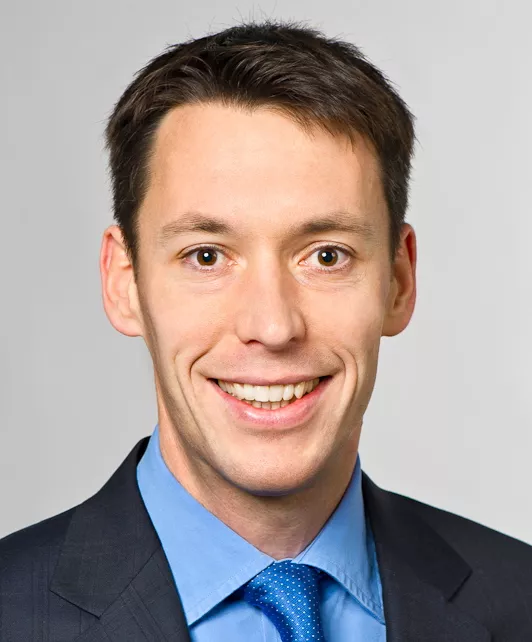Since December 1, 2012 Prof. Dr. Jörg Königstorfer is Ordinarius at the Department of Sport and Health Management. He graduated from the University of Bayreuth and received a diploma in Sport Management. Together with two medical doctors, the 35-year-old professor founded a company that offers preventive health services to consumers. During his entrepreneurship, Königstorfer experienced that German patients have "a low willingness to pay for health protection." A problem that aroused his research interest. In 2004 the born Swabian started working as a research assistant at the European University Viadrina in Frankfurt (Oder), Germany. During his PhD about "the acceptance of innovations" he was also employed by Saarland University. In 2011, he worked as a post doc at the Smeal College of Business of the Pennsylvania State University, USA.
Mr. Königstorfer, what do you associate with Technische Universität München?
"The TUM is a lighthouse university in Germany that provides a unique, scientific sourrounding to me. The Faculty of Sports and Health Sciences is very research-oriented. This, too, is very unique in this field of studies in Germany. Furthermore, I have the possibility to cooperate in many fields: e.g., with the TUM School of Management in the field of economics or with nutritional sciences that are offered at the TUM Campus in Weihenstephan. In my opinion, it is essential to consider research topics that go beyond predefined faculty borders. Of course, sport students have many benefits, too, because they get educated in the intersection of sport/health and management. All in all, the TUM offers opportunities that I would never have at another university."
The students will mainly experience you while giving clases. What is your contribution?
"Students should experience science as early as possible. They should try to answer new research questions, e.g., in projects, seminars or in their thesis. This will give them a feeling of how science yields results and implications, and how publications are written. Also, a fact that is essential for their future career - they will be able to deduce individually designed recommendations for the management of companies based on empirical data."
What is the focus of your research?
"The main focus of my research is the identification of win-win situations in sport and health markets: Situations in which both companies and the society as a whole benefits. In this context, people can use sport as an instrument for health maintainance. As, for example, in the case with corporate health management, designing sport products and services, that motivate consumers to excercise or the marketing strategies employed by providers on the health market. Beyond this, I am working on common management topics, e.g., as regards the behavior of sport spectators, sport sponsorship, and health marketing in hospitals or health insurance companies.
You have worked in the USA before. To what extent do Germany and the USA differ?
"Sport is very important at universities in the USA. Those who compete in the highest university leagues - both the university and the athletes themselves - receive a very high attention. The budget of the sport faculties is often not less than that of European professional football clubs. At the Pennsylvania State University, the stadium seats more than 110.000 people. During the football games, the stadium was sold out regularly - even though the population of the town amounts to only about 42.000 people. Such sport events generate the university additional profits. An avarage ticket price costs about $50.
The sport brings a lot of prestige to the universities. For athletes, this means that they can apply to become professional players. At the same time, they can study at the most highly ranked universities. This structure thus enables students to combine education and atheltic ambitions. In this respect, Germany still has a great backlog-demand."
How does the work atmosphere between the universities differ?
"The working process is similar, but the organizing structure varies. Professors are not chair of one particular department. They are organized in larger units, according to their research interests. Furthermore, the number of professors per student is higher in the USA. At TUM, we are on a good way, because we will get more professors, especially in our faculty. However, the ratios are still not comparable to that of leading universities in the USA. Another difference is that professors can focus either on teaching or on research. In Germany, professors do both teaching and research. Personally, I like this even though I sometimes wish I could do more for one or the other."
Interview: Fabian Kautz.
Contact:
Prof. Dr. Jörg Königstorfer
Uptown Munich Campus D
Georg-Brauchle-Ring 60/62
80992 Munich
Phone: +49.89.289.24559
Fax: +49.89.289.24642
info.mgt(at)sg.tum.de
